Broccoli, a cruciferous vegetable packed with nutrients, has gained recognition as a superfood due to its numerous health benefits. This article explores the scientific evidence behind the consumption of broccoli and its positive impact on human health. Supported by research studies, we will uncover the key nutritional components of broccoli that contribute to its remarkable health-promoting properties.
Broccoli contains bioactive compounds, such as sulforaphane, glucosinolates, and indole-3-carbinol, which have been extensively studied for their anti-cancer properties. These compounds have shown potential in inhibiting the growth of cancer cells, promoting detoxification, and reducing inflammation.Sulforaphane, for instance, is formed when the enzyme myrosinase interacts with glucoraphanin, a glucosinolate found abundantly in broccoli. This compound has been of particular interest in cancer research due to its ability to target and inhibit the formation of cancerous cells through various mechanisms. Studies have shown that sulforaphane can modulate the expression of genes involved in cancer development, induce apoptosis (programmed cell death) in cancer cells, and impede the spread of tumors by suppressing angiogenesis, the process of forming new blood vessels to support tumor growth.Furthermore, broccoli contains significant amounts of dietary fiber, vitamins, and minerals, which contribute to its overall cancer-fighting properties. The fiber content aids in maintaining a healthy digestive system by promoting regular bowel movements and eliminating toxins from the body efficiently. Vitamins such as vitamin C, vitamin K, and folate, along with minerals like potassium and calcium, not only support various physiological functions but also bolster the body’s immune response against cancerous cells.Additionally, the unique combination of phytochemicals found in broccoli works synergistically to enhance its anti-cancer effects. For example, indole-3-carbinol, another compound present in broccoli, has been shown to regulate estrogen metabolism, potentially reducing the risk of hormone-related cancers such as breast and prostate cancer. Moreover, the diverse array of antioxidants in broccoli, including vitamin E and various flavonoids, helps combat oxidative stress, which is implicated in cancer development and progression.References:
The high fiber content in broccoli promotes a healthy digestive system by supporting regular bowel movements and preventing constipation. Additionally, broccoli contains a compound called sulforaphane, which may help protect against gastrointestinal infections and maintain a balanced gut microbiota.Furthermore, broccoli is rich in antioxidants like vitamin C, vitamin E, and various phytonutrients, which play a crucial role in reducing inflammation in the digestive tract. Chronic inflammation in the gut can lead to various digestive disorders such as inflammatory bowel disease (IBD) and irritable bowel syndrome (IBS). By incorporating broccoli into your diet, you can help mitigate inflammation and support overall digestive wellness.Moreover, the presence of indigestible fiber in broccoli, such as cellulose and hemicellulose, acts as a prebiotic, nourishing beneficial bacteria in the gut. These fibers are fermented by the gut microbiota, producing short-chain fatty acids (SCFAs) like butyrate, acetate, and propionate. SCFAs are essential for maintaining the integrity of the intestinal lining, enhancing nutrient absorption, and modulating immune function within the gut.Additionally, broccoli contains a unique compound called glucoraphanin, which is converted into sulforaphane during digestion. Sulforaphane exhibits potent anti-inflammatory and antioxidant properties, which can help alleviate symptoms associated with digestive issues like bloating, gas, and discomfort. Its ability to regulate the expression of genes involved in inflammation makes sulforaphane a promising component in promoting digestive health.References:
Consuming broccoli can be beneficial for heart health due to its unique combination of nutrients and bioactive compounds. The presence of fiber, vitamin C, potassium, and sulforaphane in broccoli contributes to maintaining healthy blood pressure levels and reducing the risk of cardiovascular diseases. Studies suggest that regular broccoli consumption may help improve lipid profiles by reducing LDL cholesterol levels.Furthermore, broccoli contains a substantial amount of dietary fiber, which plays a crucial role in supporting heart health. Fiber helps to lower cholesterol levels by binding to cholesterol in the digestive tract and facilitating its excretion from the body. By reducing the absorption of cholesterol, fiber helps to maintain healthy blood lipid levels and mitigate the risk of atherosclerosis and cardiovascular disease.In addition to fiber and sulforaphane, broccoli is also rich in vitamin K, which is essential for cardiovascular health. Vitamin K contributes to proper blood clotting, which is crucial for preventing excessive bleeding and maintaining vascular integrity. Moreover, emerging research suggests that vitamin K may have additional cardiovascular benefits, such as reducing arterial calcification and improving arterial elasticity.References:
Broccoli contains lutein and zeaxanthin, carotenoids known for their role in promoting eye health. These compounds help protect the eyes from harmful oxidative stress and age-related macular degeneration, a leading cause of vision loss. Regular consumption of broccoli may contribute to maintaining healthy vision and reducing the risk of eye-related diseases.Broccoli stands out as an exceptional source of these beneficial carotenoids, with lutein and zeaxanthin present in significant amounts. These compounds are particularly concentrated in broccoli florets, making it a potent addition to any diet aimed at supporting eye health. Moreover, broccoli is rich in vitamin C, another crucial nutrient for eye health. Vitamin C acts as an antioxidant, further safeguarding the eyes against oxidative damage and contributing to the maintenance of healthy ocular tissues.Additionally, broccoli contains beta-carotene, another carotenoid that converts into vitamin A in the body. Vitamin A plays a vital role in maintaining proper vision, especially in low-light conditions, and supports the health of the retina. Including broccoli in your diet ensures a wholesome intake of these essential nutrients, providing comprehensive support for optimal eye function.Furthermore, the fiber content in broccoli aids in regulating blood sugar levels, which indirectly benefits eye health. Fluctuations in blood sugar levels can impact vision, especially in individuals with diabetes. By promoting stable blood sugar levels, broccoli helps mitigate the risk of diabetic retinopathy and other diabetes-related eye complications. Therefore, incorporating broccoli into your meals not only adds flavor and nutrition but also contributes to the long-term preservation of your eyesight.References:
Incorporating broccoli into a balanced diet can be beneficial for weight management. With its low calorie and high fiber content, broccoli can help promote satiety, reduce calorie intake, and support healthy weight loss. The fiber in broccoli aids in digestion, keeps you feeling fuller for longer, and may prevent overeating.Additionally, broccoli is rich in nutrients essential for weight management. It is a great source of vitamins C and K, as well as folate and potassium. These nutrients play various roles in the body, including supporting metabolism, regulating blood sugar levels, and maintaining overall health. Moreover, broccoli contains compounds like sulforaphane, which has been studied for its potential to aid in weight loss by promoting fat burning and reducing inflammation.Furthermore, incorporating broccoli into meals adds volume and texture without significantly increasing calorie intake, making it a valuable component of a weight management plan. Its versatility allows for various culinary preparations, from steaming and roasting to stir-frying and blending into smoothies. This adaptability makes it easier to enjoy broccoli regularly as part of a balanced diet aimed at achieving and maintaining a healthy weight.References: Embrace the goodness of broccoli and elevate your meals with this delicious recipe for Avocado and Broccoli Tacos. Experience the health benefits while savoring a delightful culinary adventure.
Embrace the goodness of broccoli and elevate your meals with this delicious recipe for Avocado and Broccoli Tacos. Experience the health benefits while savoring a delightful culinary adventure.
Antioxidant Activity
Broccoli is rich in antioxidants, including flavonoids, carotenoids, and vitamin C. These antioxidants help neutralize harmful free radicals, protect cells from oxidative damage, and reduce the risk of chronic diseases such as cancer, cardiovascular diseases, and neurodegenerative disorders.Furthermore, broccoli contains unique phytochemicals such as sulforaphane, glucoraphanin, and indole-3-carbinol, which exhibit potent antioxidant effects. Sulforaphane, in particular, has garnered significant attention for its ability to enhance the body’s natural defense mechanisms against oxidative stress. Studies suggest that sulforaphane may activate phase II detoxification enzymes, promoting the removal of carcinogenic substances and bolstering cellular defense systems.Moreover, broccoli is a rich source of glucoraphanin, a precursor to sulforaphane. This compound contributes to broccoli’s antioxidant activity by supporting the body’s production of sulforaphane upon consumption. Additionally, indole-3-carbinol, found abundantly in cruciferous vegetables like broccoli, demonstrates antioxidative properties and has been investigated for its potential role in reducing the risk of certain cancers, particularly those related to hormonal factors.References:- Farnham MW, et al. Flavonoids, antioxidants, and the risk of chronic diseases. Arch Biochem Biophys. 2014;559:103-111.
 Cancer-Fighting Properties
Cancer-Fighting Properties
Broccoli contains bioactive compounds, such as sulforaphane, glucosinolates, and indole-3-carbinol, which have been extensively studied for their anti-cancer properties. These compounds have shown potential in inhibiting the growth of cancer cells, promoting detoxification, and reducing inflammation.Sulforaphane, for instance, is formed when the enzyme myrosinase interacts with glucoraphanin, a glucosinolate found abundantly in broccoli. This compound has been of particular interest in cancer research due to its ability to target and inhibit the formation of cancerous cells through various mechanisms. Studies have shown that sulforaphane can modulate the expression of genes involved in cancer development, induce apoptosis (programmed cell death) in cancer cells, and impede the spread of tumors by suppressing angiogenesis, the process of forming new blood vessels to support tumor growth.Furthermore, broccoli contains significant amounts of dietary fiber, vitamins, and minerals, which contribute to its overall cancer-fighting properties. The fiber content aids in maintaining a healthy digestive system by promoting regular bowel movements and eliminating toxins from the body efficiently. Vitamins such as vitamin C, vitamin K, and folate, along with minerals like potassium and calcium, not only support various physiological functions but also bolster the body’s immune response against cancerous cells.Additionally, the unique combination of phytochemicals found in broccoli works synergistically to enhance its anti-cancer effects. For example, indole-3-carbinol, another compound present in broccoli, has been shown to regulate estrogen metabolism, potentially reducing the risk of hormone-related cancers such as breast and prostate cancer. Moreover, the diverse array of antioxidants in broccoli, including vitamin E and various flavonoids, helps combat oxidative stress, which is implicated in cancer development and progression.References:- Hayes JD, et al. The cancer chemopreventive actions of phytochemicals derived from glucosinolates. Eur J Nutr. 2008;47(Suppl 2):73-88.
 Digestive Health
Digestive Health
The high fiber content in broccoli promotes a healthy digestive system by supporting regular bowel movements and preventing constipation. Additionally, broccoli contains a compound called sulforaphane, which may help protect against gastrointestinal infections and maintain a balanced gut microbiota.Furthermore, broccoli is rich in antioxidants like vitamin C, vitamin E, and various phytonutrients, which play a crucial role in reducing inflammation in the digestive tract. Chronic inflammation in the gut can lead to various digestive disorders such as inflammatory bowel disease (IBD) and irritable bowel syndrome (IBS). By incorporating broccoli into your diet, you can help mitigate inflammation and support overall digestive wellness.Moreover, the presence of indigestible fiber in broccoli, such as cellulose and hemicellulose, acts as a prebiotic, nourishing beneficial bacteria in the gut. These fibers are fermented by the gut microbiota, producing short-chain fatty acids (SCFAs) like butyrate, acetate, and propionate. SCFAs are essential for maintaining the integrity of the intestinal lining, enhancing nutrient absorption, and modulating immune function within the gut.Additionally, broccoli contains a unique compound called glucoraphanin, which is converted into sulforaphane during digestion. Sulforaphane exhibits potent anti-inflammatory and antioxidant properties, which can help alleviate symptoms associated with digestive issues like bloating, gas, and discomfort. Its ability to regulate the expression of genes involved in inflammation makes sulforaphane a promising component in promoting digestive health.References:- Zhu Y, et al. Broccoli sprout extract induces detoxification-related gene expression and attenuates acute liver injury. World J Gastroenterol. 2013;19(35):5674-5683.
 Heart Health
Heart Health
Consuming broccoli can be beneficial for heart health due to its unique combination of nutrients and bioactive compounds. The presence of fiber, vitamin C, potassium, and sulforaphane in broccoli contributes to maintaining healthy blood pressure levels and reducing the risk of cardiovascular diseases. Studies suggest that regular broccoli consumption may help improve lipid profiles by reducing LDL cholesterol levels.Furthermore, broccoli contains a substantial amount of dietary fiber, which plays a crucial role in supporting heart health. Fiber helps to lower cholesterol levels by binding to cholesterol in the digestive tract and facilitating its excretion from the body. By reducing the absorption of cholesterol, fiber helps to maintain healthy blood lipid levels and mitigate the risk of atherosclerosis and cardiovascular disease.In addition to fiber and sulforaphane, broccoli is also rich in vitamin K, which is essential for cardiovascular health. Vitamin K contributes to proper blood clotting, which is crucial for preventing excessive bleeding and maintaining vascular integrity. Moreover, emerging research suggests that vitamin K may have additional cardiovascular benefits, such as reducing arterial calcification and improving arterial elasticity.References:- Riedl MA, et al. Potential of broccoli and its bioactive components in heart disease prevention and treatment. Biochim Biophys Acta. 2015;1852(7):1260-1271.
 Eye Health
Eye Health
Broccoli contains lutein and zeaxanthin, carotenoids known for their role in promoting eye health. These compounds help protect the eyes from harmful oxidative stress and age-related macular degeneration, a leading cause of vision loss. Regular consumption of broccoli may contribute to maintaining healthy vision and reducing the risk of eye-related diseases.Broccoli stands out as an exceptional source of these beneficial carotenoids, with lutein and zeaxanthin present in significant amounts. These compounds are particularly concentrated in broccoli florets, making it a potent addition to any diet aimed at supporting eye health. Moreover, broccoli is rich in vitamin C, another crucial nutrient for eye health. Vitamin C acts as an antioxidant, further safeguarding the eyes against oxidative damage and contributing to the maintenance of healthy ocular tissues.Additionally, broccoli contains beta-carotene, another carotenoid that converts into vitamin A in the body. Vitamin A plays a vital role in maintaining proper vision, especially in low-light conditions, and supports the health of the retina. Including broccoli in your diet ensures a wholesome intake of these essential nutrients, providing comprehensive support for optimal eye function.Furthermore, the fiber content in broccoli aids in regulating blood sugar levels, which indirectly benefits eye health. Fluctuations in blood sugar levels can impact vision, especially in individuals with diabetes. By promoting stable blood sugar levels, broccoli helps mitigate the risk of diabetic retinopathy and other diabetes-related eye complications. Therefore, incorporating broccoli into your meals not only adds flavor and nutrition but also contributes to the long-term preservation of your eyesight.References:- Bao Y, et al. Association between dietary lutein and zeaxanthin intake and risk of age-related macular degeneration: a meta-analysis. Sci Rep. 2016;6:20560.
 Weight Management
Weight Management
Incorporating broccoli into a balanced diet can be beneficial for weight management. With its low calorie and high fiber content, broccoli can help promote satiety, reduce calorie intake, and support healthy weight loss. The fiber in broccoli aids in digestion, keeps you feeling fuller for longer, and may prevent overeating.Additionally, broccoli is rich in nutrients essential for weight management. It is a great source of vitamins C and K, as well as folate and potassium. These nutrients play various roles in the body, including supporting metabolism, regulating blood sugar levels, and maintaining overall health. Moreover, broccoli contains compounds like sulforaphane, which has been studied for its potential to aid in weight loss by promoting fat burning and reducing inflammation.Furthermore, incorporating broccoli into meals adds volume and texture without significantly increasing calorie intake, making it a valuable component of a weight management plan. Its versatility allows for various culinary preparations, from steaming and roasting to stir-frying and blending into smoothies. This adaptability makes it easier to enjoy broccoli regularly as part of a balanced diet aimed at achieving and maintaining a healthy weight.References:- Riso P, et al. Effect of 10-day broccoli consumption on inflammatory status of young healthy smokers. Int J Food Sci Nutr. 2015;66(6):680-685.
Bone Health
Broccoli is a good source of calcium, a crucial mineral for maintaining strong and healthy bones. It also contains other essential nutrients such as vitamin K, magnesium, and phosphorus, which contribute to bone health and help reduce the risk of osteoporosis and fractures.Additionally, broccoli stands out as a potent source of compounds like sulforaphane and glucosinolates, which exhibit anti-inflammatory and antioxidant properties. These bioactive compounds play a vital role in preserving bone density and integrity by combating oxidative stress and inflammation, which are implicated in bone degeneration and age-related bone disorders.Moreover, broccoli contains high levels of fiber, which aids in maintaining optimal gut health. Emerging research suggests a strong link between gut microbiota and bone health, emphasizing the importance of a healthy digestive system in maximizing nutrient absorption, including those crucial for bone strength.Furthermore, broccoli is a low-calorie vegetable, making it an excellent choice for those aiming to maintain a healthy weight. Excess body weight can exert additional stress on bones, increasing the risk of fractures and osteoporosis. By incorporating broccoli into a balanced diet, individuals can support their bone health while managing their weight effectively.References:- Orchard TS, et al. Plasma vitamin C level, fruit and vegetable consumption, and the risk of new-onset type 2 diabetes mellitus: the European Prospective Investigation of Cancer-Norfolk prospective study. Arch Intern Med. 2008;168(14):1493-1499.
Skin Health
In addition to its internal health benefits, broccoli can also contribute to radiant skin. The high vitamin C content in broccoli supports collagen production, which helps maintain the elasticity and firmness of the skin. Moreover, the antioxidants present in broccoli help protect the skin from oxidative stress and promote a healthy complexion.Furthermore, broccoli contains various bioactive compounds such as sulforaphane, glucoraphanin, and beta-carotene, which have been shown to have anti-inflammatory properties. These compounds help reduce inflammation in the skin, which can alleviate conditions like acne, eczema, and psoriasis. Additionally, the presence of sulforaphane in broccoli aids in the body’s natural detoxification process, helping to flush out toxins that could otherwise contribute to skin problems.Moreover, broccoli is a rich source of vitamin E, another essential nutrient for skin health. Vitamin E is a potent antioxidant that helps protect the skin from damage caused by harmful UV rays and environmental pollutants. By neutralizing free radicals, vitamin E helps prevent premature aging signs such as wrinkles, fine lines, and age spots, keeping the skin looking youthful and vibrant.References:- Telang PS. Vitamin C in dermatology. Indian Dermatol Online J. 2013;4(2):143-146.
Brain Health
Emerging research suggests that consuming broccoli may have positive effects on brain health. Certain compounds found in broccoli, such as sulforaphane and glucosinolates, exhibit neuroprotective properties and may help reduce the risk of age-related cognitive decline and neurodegenerative diseases like Alzheimer’s and Parkinson’s.Broccoli is renowned for its rich concentration of various nutrients that are crucial for maintaining optimal brain function. It is a powerhouse of vitamins, particularly vitamin K and vitamin C, both of which play significant roles in supporting cognitive function and overall brain health. Vitamin K is essential for forming sphingolipids, a type of fat densely packed into brain cells, aiding in cognitive processes such as memory and learning. On the other hand, vitamin C acts as a potent antioxidant, combating oxidative stress in the brain and protecting against age-related cognitive decline.Moreover, broccoli contains high levels of antioxidants and anti-inflammatory compounds, including flavonoids and carotenoids, which contribute to its neuroprotective effects. These compounds work synergistically to neutralize harmful free radicals, reduce inflammation in the brain, and promote the growth of new neurons, which are vital for maintaining cognitive function and preventing neurodegenerative diseases.Additionally, broccoli is a rich source of dietary fiber and other phytonutrients that support gut health. Emerging research has highlighted the crucial link between gut health and brain function, often referred to as the “gut-brain axis.” A healthy gut microbiome nurtured by fiber-rich foods like broccoli plays a pivotal role in regulating neurotransmitter production, mood stability, and cognitive performance.References:- Tarozzi A, et al. Sulforaphane as a potential protective phytochemical against neurodegenerative diseases. Oxid Med Cell Longev. 2013;2013:415078.
Nutritional values for 100 grams of broccoli
- Calories: 34 kcal
- Carbohydrates: 6.64 grams
- Sugars: 1.7 grams
- Dietary Fiber: 2.6 grams
- Protein: 2.82 grams
- Fat: 0.37 grams
- Saturated Fat: 0.04 grams
- Monounsaturated Fat: 0.013 grams
- Polyunsaturated Fat: 0.151 grams
- Vitamins:
- Vitamin C: 89.2 mg
- Vitamin A: 623 IU
- Vitamin K: 101.6 µg
- Vitamin E: 0.08 mg
- Vitamin B6: 0.175 mg
- Folate (Vitamin B9): 63 µg
- Minerals:
- Calcium: 47 mg
- Iron: 0.73 mg
- Magnesium: 21 mg
- Phosphorus: 66 mg
- Potassium: 316 mg
- Zinc: 0.41 mg
- Other:
- Water: 89.3 grams
- Energy: 141 kJ (34 kcal)
- Sugars, total: 1.7 grams
- Fiber, total dietary: 2.6 grams
- Vitamin K (phylloquinone): 101.6 µg
- Folate, total: 63 µg
Conclusion
Scientific research highlights the exceptional health benefits of consuming broccoli. Its rich nutrient profile, antioxidant activity, cancer-fighting properties, and positive impact on digestive health make it a valuable addition to a balanced diet. By incorporating broccoli into our meals, we can harness its potential to promote overall well-being and reduce the risk of chronic diseases. Remember to enjoy broccoli as part of a varied and nutritious diet for optimal health benefits. Embrace the goodness of broccoli and elevate your meals with this delicious recipe for Avocado and Broccoli Tacos. Experience the health benefits while savoring a delightful culinary adventure.
Embrace the goodness of broccoli and elevate your meals with this delicious recipe for Avocado and Broccoli Tacos. Experience the health benefits while savoring a delightful culinary adventure.Contraindications
While broccoli is generally safe and beneficial for most people, there are a few considerations and potential contraindications to keep in mind:Thyroid Conditions: Broccoli belongs to the cruciferous vegetable family, which contains compounds called goitrogens that may interfere with thyroid function in large amounts. Individuals with thyroid conditions, such as hypothyroidism, should moderate their intake of cruciferous vegetables, including broccoli, and consult with a healthcare professional.Gastrointestinal Sensitivity: Some individuals may experience digestive discomfort, such as gas or bloating, when consuming broccoli or other cruciferous vegetables. If you have a sensitive stomach or a history of gastrointestinal issues, it’s advisable to consume broccoli in moderation and monitor your body’s response.Blood-Thinning Medications: Broccoli contains vitamin K, which plays a role in blood clotting. If you are taking blood-thinning medications, such as warfarin, it is essential to maintain consistent vitamin K intake to ensure the proper effectiveness of your medication. Consult with your healthcare provider to determine the appropriate intake of vitamin K-rich foods like broccoli.Allergies:While rare, some individuals may have allergies to broccoli or other vegetables in the Brassicaceae family. If you experience any symptoms of an allergic reaction, such as itching, swelling, or difficulty breathing, seek immediate medical attention.It’s important to note that individual responses and sensitivities can vary. If you have any specific health concerns or medical conditions, it is always recommended to consult with a healthcare professional or registered dietitian before making significant changes to your diet.Fascinating Facts About Broccoli
- Natural Pesticide:
- Broccoli Flowers:
- Broccoli Sprouts:
- Broccoli Stalks:
- Broccoli Microgreens:
- Broccoli as a Symbol of Prosperity:
- Broccoli Ice Cream:
- Broccoli’s Roman Roots:
- Broccoli’s Close Relatives:
- Broccoli’s Colorful Cousins:
- Broccoli’s Astronaut Adventures:
- Broccoli’s Musical Affinity:
- Broccoli’s Artistic Interpretations:
- Broccoli’s Role in Pop Culture:
To explore more plants, please visit our page about plants
See the benefits for: Hair , Skin , Heart , Bones , Liver , Brain , Eyes , Kidney , Lungs , Stomach , Gallbladder , Blood vessels, Immune system
Disclaimer:
The information provided in this article is for educational purposes only and does not replace professional medical advice. Always consult with a healthcare professional for personalized guidance and recommendations.
Table of Contents


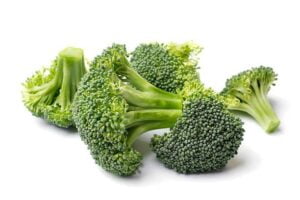 Cancer-Fighting Properties
Cancer-Fighting Properties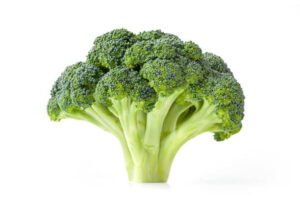 Digestive Health
Digestive Health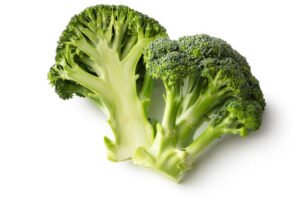 Heart Health
Heart Health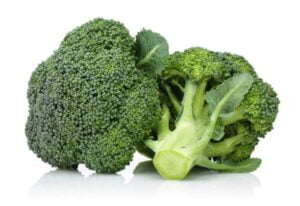 Eye Health
Eye Health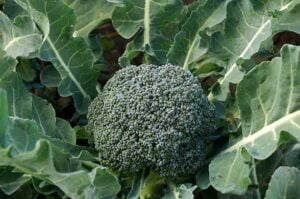 Weight Management
Weight Management